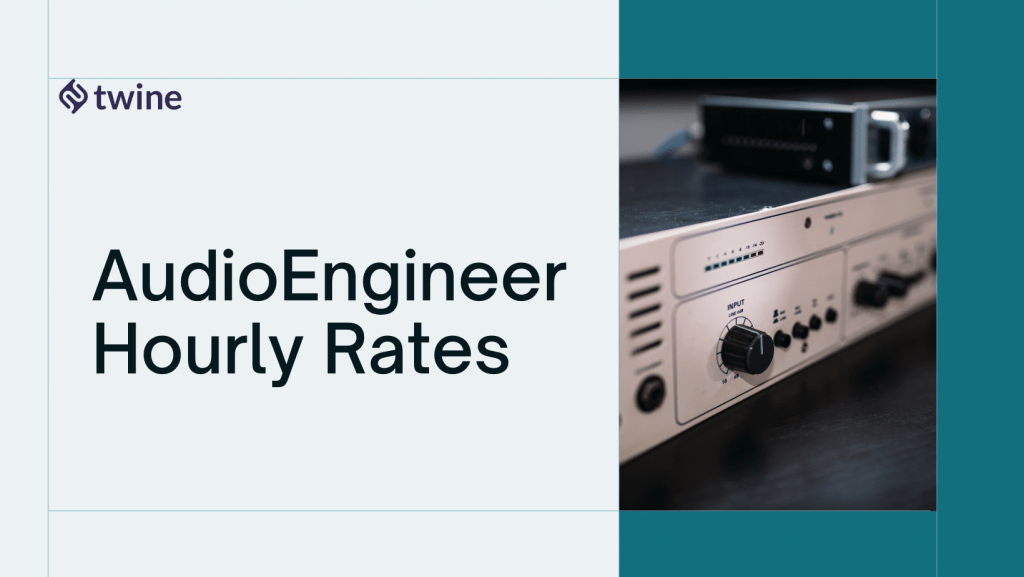
As a client in need of professional audio services, whether for a music recording, podcast production, or live event, understanding the hourly rates of audio engineers is important. If you’re considering hiring a freelance audio engineer, it’s essential to understand their compensation structure. Freelancers often charge hourly rates or project-based fees, and their salaries can fluctuate based on the number of projects secured and their rates.
According to Glassdoor, the average annual salary for a freelance audio engineer in the United States is approximately $52,000, but top-earning freelancers can earn well over $100,000 per year, especially those with specialised skills or a strong client base.
In this blog post, we’ll explore the hourly rates of audio engineers and provide insight into the factors that influence their hourly rates.
Factors Influencing Audio Engineer Hourly Rates
Several factors contribute to the hourly rates charged by audio engineers, and as a client, it’s essential to understand these factors to budget and negotiate rates effectively.
1. Experience and Expertise: Seasoned audio engineers with years of experience and a proven track record typically command higher rates than entry-level professionals. Their expertise and ability to handle complex projects justify their premium rates.
2. Location: Rates can vary significantly depending on the cost of living and industry standards in different regions or cities. Audio engineers in major metropolitan areas tend to charge higher rates than those in smaller cities or rural areas.
3. Project Type: Rates may differ based on the project’s complexity, duration, and scope. For instance, live events or studio recordings may have different rate structures compared to post-production work.
4. Industry: Audio engineers working in the music industry may charge different rates compared to those in film, television, or corporate sectors due to varying industry standards and demand.
5. Demand: Supply and demand dynamics can influence rates. During high-demand periods or for specialised skills, audio engineers may charge premium rates to reflect their value.
How Much Do Audio Engineers Make?
To give you a better idea of what to expect when hiring an audio engineer, here’s a table showcasing average hourly rates across various experience levels and project types:
Experience Level | Studio Recording | Live Events | Post-Production |
Entry-Level | $25 – $50 | $20 – $40 | $20 – $40 |
Intermediate | $50 – $80 | $40 – $70 | $40 – $60 |
Experienced | $80 – $150 | $70 – $120 | $60 – $100 |
Expert | $150 – $300+ | $120 – $250+ | $100 – $200+ |
These rates are approximate and can vary based on location, project scope, and other factors mentioned earlier.
In addition to hourly rates, some audio engineers may offer day rates or project-based pricing. Typical day rates can range from $300 to $1,000 or more, depending on the project’s complexity and the engineer’s experience level.
Sound Engineer Salaries
Sound engineers, closely related to audio engineers, often work in live event settings, such as concerts, theaters, or broadcasting studios. If you’re hiring for a live event, understanding their hourly rates is essential. According to PayScale, the average hourly rate for a sound engineer in the United States is around $20 per hour, with annual salaries ranging from $30,000 to $70,000 or more, depending on experience and location.
Remember, these are just ballpark figures. The actual cost of your project can fall outside these ranges depending on the factors mentioned above. Talk to Twine audio engineers to get a better idea of the cost.
Hold On! Here are some additional articles that would be beneficial for you,
- Craft the perfect audio engineer job description with this handy template
- Get a detailed breakdown of the costs involved in audio production
Want to discuss your budget with experts? Find Audio Engineers here




